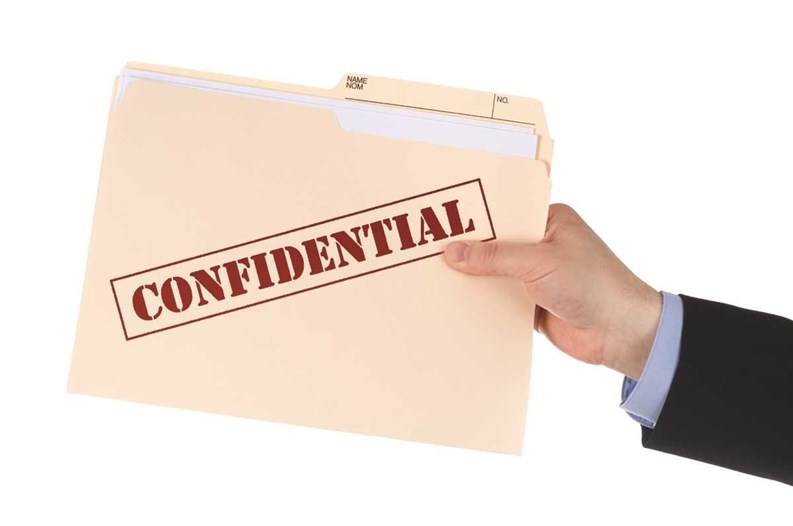Serving on the board is not all fun and games, glamor and glory. There’s also some paperwork involved. In fact, the flow of paperwork is the lifeblood of the community.
The Articles of Incorporation, proprietary lease and bylaws in a co-op and the condo association’s master deed, declaration and bylaws are the foundation of the business that is your typical co-op, condominium or homeowners’ association. The voluminous documents produced day to day are the records of its operation and the correspondence among the board, owners and management create the tenor of life within the community. Keeping documents and records tidy and communications responsible and transparent are key to running a functional and harmonious community.
Letters of the Law
The laws governing the documentation the co-op or condo must produce and distribute are few, surprisingly.
“It would be nice actually if there were some laws about that,” says Alvin Wasserman, the director of asset management and human resources at Melville, Long Island-based Fairfield Properties. “There are laws that come from the accounting profession in terms of reporting requirements, but in terms of correspondence and reports that are unrelated to the accounting of the property, there are no common standards.”
The documents that do need to be produced and held by the corporation are dictated by Article 6 of the New York State, the Business Corporation Law (BCL), in the case of co-ops, and the New York State Property Law, Article 9-B, the Condominium Act, which governs condominium practices. The requirements are virtually same for both.
The corporation needs to store permanently the articles of incorporation and all corporate documents, bylaws—the declaration in the case of condos—rules and regulations and all amendments. It must also keep the minutes of board and membership meetings, audit reports, year-end financial statements and the names and addresses of unit owners and their percentage of ownership.
All tax returns should be kept permanently as well but the supporting paperwork like records of income and deduction need only be kept for seven years to satisfy the IRS Code. Employee records, including benefit and pension plans should be kept permanently and employee tax records for at least four years.
The reports that have to be produced by the corporation and distributed to owners include an annual financial report prepared by an accountant including a full audit of the books, balance sheet and a cash flow report and a notice regarding the annual shareholders meeting, which, in the case of co-ops, may be served as early as 60 days in advance and no later than 10 days in advance.
The Governing Documents
The most important document in the life of the condo community, subordinate only to U.S. and state laws, is the condominium declaration, or covenants, conditions and restrictions (CC&R) in the case of HOAs, written by the developer at its inception.
The declaration contains a detailed breakdown of the property, including engineering sketches and each owner’s proportionate share of the property and portion of the monthly common expenses. It also describes the common areas of the complex.
The second record of importance is the bylaws, which lays out the rules for self-governance of the association, including how the board directs its affairs, enforces policies and oversees upkeep and administration. The bylaws also cover such matters as requirements for meetings, voting, the manner in which the budget should be prepared, the determination and handling of assessments, and the filing of assessment liens and restrictions on the use of the units and the common areas.
Third in the hierarchy of governing documents are the rules and regulations, which are specific policies the board writes to administer and enforce the declaration and the bylaws.
The rules and regulations are the most malleable of the documents of the association. While bylaws take a super-majority of the association to be amended, the rules can be rewritten by a majority of board members.
All of the corporate records mentioned above can be accessed by any shareholder or association member. They are typically stored at the management office where they can be seen on demand within a reasonable amount of time and even copied by owners by appointment.
Second Set of Books
It’s good practice to have a second set of all the records of the corporation in a safe place at the building, says Manhattan-based attorney Helene Hartig. “If something happens with the managing agent or if the board is in a hurry, you shouldn't be beholden to your managing agent.”
Storing everything on-site facilitates ready reference and review, says Hartig, “so the board can educate themselves, and when a question comes up either by a shareholder or in the context of a board meeting, or when they need to provide it to a bank for refinancing, they always have it available.”
You’re On Your Own
So much for the letter of the law. The section in the Condominium Act on keeping all of remaining records of the ongoing operation, echoed in the BCL, is brief. In a slim paragraph the Act stipulates that boards “keep detailed, accurate records, in chronological order, of the receipts and expenditures arising from the operation of the property.”
In practice, the board and management will produce and maintain mountains of paperwork, from the minutes of board meetings to sales and sublet applications, contracts with vendors, invoices, receipts and checks, as well as correspondence with unit owners.
The board has access to every bit of it. They need to in order to fulfill their fiduciary responsibility. For the most part, how they share that information with the community is left to them. According to Hartig, “Business judgment rule permits the board of directors to act in their discretion and to make good faith decisions on behalf of shareholders they were elected to represent”—and that includes how they disburse information to the community.
Enlightened boards rightfully tend to err on the side of disclosure when it comes to the records of the operation, in the interest of transparency—to avoid any appearance of obfuscation or self-serving. But, cautions Hartig, they shouldn’t let their policy of openness get in the way of doing the business of the co-op or condo. “When shareholders need to micromanage or scrutinize every invoice or bid obtained by managing agents or board members, it is difficult to move forward.”
Sharing the Minutes
Minutes must be recorded and kept for every board meeting, but there are no precise regulations for their preparation. They should be a clear, succinct but complete record of topics discussed and decisions made or deferred in the meeting. Most managers and attorneys recommend a policy of openness in documenting the meetings—up to a point.
“It’s very important to be very transparent,” says Hartig, “but don't cross the line.”
Meeting minutes can be presented as evidence in legal proceedings—“which is why most buildings now give a redacted version of the minutes.” says Hartig. “Some boards think that if they embarrass the shareholder, they will be motivated to pay arrears. But it also angers people that might have a legitimate issue. Please tread very carefully in those areas—even though technically you can do it.”
Another reason not to get carried away with presenting the lurid details of problems in the building or disputes with shareholders: savvy potential buyers and their attorneys these days ask to examine the minutes to get a feel for the community in which they might live.
The BCL says a shareholder has the right to examine the minutes of meetings within five days upon written request, during business hours. But any board that sticks to that draconian protocol will have a mutiny on their hands in no time. Most boards announce that the minutes are waiting at the front desk when they are completed. And more and more boards today send out the monthly minutes via email.
For Your Eyes Only
There are some documents that board members are allowed to see that “civilian” shareholders are not.
While residents should have access to the minutes of shareholders meetings, they usually won’t be allowed to see the minutes of board meetings, says Dennis H. Greenstein, a partner with Seyfarth Shaw, LLP, a law firm in Manhattan.
Additionally, it is generally agreed that documents which are covered considered attorney-client privileged material as well as copies of the drivers license, social security numbers. Additionally any information obtained about someone in connection with a sale or sublet of the unit, is also supposed to be kept confidential.
But the board’s access to the personal data in applications should end when the decision is made. “Once that process is done,” says Hartig, “you have a responsibility to make sure that documentation doesn't get into the wrong hands.” Otherwise, she advises, “you can run into invasion of privacy issues.”
Once the admissions committee had made its decision on an application, “it should go right to the shredder,” says Hartig—“not into the building’s recycling bin. And don’t give it to the super to throw away or leave it on a desk where employees can see it when they come in for their paycheck.”
Reach Out to the Community
To foster an atmosphere of openness, boards should communicate regularly about issues before them or to draw attention to rules and regulations. Beyond fostering an atmosphere of transparency, regular newsletters or mass emails on specific topics prepares the community for any new actions the board is considering, like the enforcement of rules on the books about which previous boards have been lax.
There have been situations when an owner who receives a letter stating that they are in violation of some rules and regulations may feel they are being singled out. This can be a situation easily solved according to industry experts. A good example would be if a situation is addressed in the association newsletter. If it is mentioned, for example, just a reminder to wipe off fitness club equipment or, a reminder to keep your dog on a leash and clean-up after it and the board is working to address the situation, then if a resident gets a letter stating they are in violation will no longer feel that they are being singled out individually.
While encouraging boards to communicate openly and frequently with shareholders and unit owners, Hartig advises that they run all correspondence through their attorney—“even a newsletter summarizing what the building did throughout the year, to make sure it doesn’t cause a host of other problems, like privacy or defamation concerns.”
The Role of the Manager
The extent to which the board relies on management to produce reports is laid out in the management contract. Buildings large enough to afford full-service management typically have them provide a monthly report in advance of the board meetings detailing the month’s activities and providing background on issues on the agenda.
The monthly report, says Wasserman, includes, “a financial section, with accounts payable, accounts receivable, activities of the past month, budget data, copies of bank statements—a summary of where the property is financially for that month.”
The report should also contain any correspondence from and sent out to shareholders and unit owners, background information on any issues the board intends to discuss and proposals from contractors for any projects that are being considered.
Wasserman recommends boards have management keep a record of every correspondence, including every email that is received and their response, and documentation of any actions taken, such as repair work or reports on a mediation between shareholders or unit owners involved in a dispute.
“You do it because it is important information to the life of the property and it protects the board,” he explains. “In the event of litigation they have documentation as to what actions they have taken.”
To avoid drowning in a sea of paperwork, the board can have management scan everything. Digitizing files makes them easy to reference and electronic records are easily transported from the management office to a building’s computer hard drives.
Beyond the Page
“The hallmark of a building that is open and transparent is more than just documents,” says Hartig.
“A building that wants to be in communication with its shareholders,” for example, she says, “should have regular meetings besides the annual meeting—informal meetings where they can share ideas, not necessarily in writing. They might hold regular meetings with shareholders every other week. They have committees that report back to the board.”
Most important—and this could be the hardest part for those not used to being in the limelight: “Every board member, particularly the board president, has to be approachable,” says Hartig. “If the board president is unwilling to have the shareholders stop them and listen to their concerns about issues, they shouldn't be a board president.”
Steven Cutler is a freelance writer and a frequent contributor to The Cooperator.







2 Comments
Leave a Comment